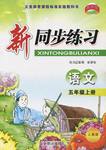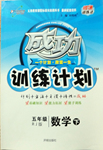
- Did he ________ well while I was out?
- Yes , better than ever.
A.do
B.behave
C.listen
D.cry
 教学练新同步练习系列答案
教学练新同步练习系列答案 课前课后同步练习系列答案
课前课后同步练习系列答案 课堂小作业系列答案
课堂小作业系列答案 黄冈小状元口算速算练习册系列答案
黄冈小状元口算速算练习册系列答案 成功训练计划系列答案
成功训练计划系列答案科目:高中英语 来源: 题型:阅读理解
阅读下面短文,根据以下提示:1)汉语提示,2)首字母提示,3)语境提示,在每个空格内填入一个适当的英语单词,并将该词完整地写在右边相对应的横线上。所填单词要求意义准确,拼写正确。
A little child was playing one day with a very valuable vase.
He put his h into it and could not draw it back out. His father too,
________________
tried his best, but all _____vain. They were thinking of breaking the vase
_______________
____(这时)his father said.“Now, my son, try one more time. Open your
_______________
hand and hold your fingers out straight as you see me d and
______________
then pull.”To ________ astonishment, the little fellow said. “Oh no,
________________
father, I couldn’t pull my fingers out like that because if I did I w
_______________
drop my penny.”________(微笑), if you will---- but thousands of us
_______________
are like that little boy.We are _______busy holding on to the world’s
_________________
________(无价值的) penny that we can not accept liberation.
______________
I beg you _____drop the little trifle (琐事)in your heart. Let go.
________________-
查看答案和解析>>
科目:高中英语 来源:2012-2013学年安徽省宿松县复兴中学高二第一次月考英语试卷(带解析) 题型:阅读理解
When I was growing up, I was embarrassed to be seen with my father. He was badly crippled (跛脚), and when we would walk together, his hand on my arm for balance, people would stare, I would be ashamed of the unwanted attention. If ever noticed or bothered, he never let on.
It was difficult to walk together—and because of that, we didn’t say much as we went along. But as we started out, he always said, “You set the pace. I will try to follow you.”
Our usual walk was to or from the subway, which was how he got to work. He went to work sick, and even in bad weather. He almost never missed a day, and would make it to the office even if others could not. It was a matter of pride for him.
When snow or ice was on the ground, it was impossible for him to walk, even with help... Such times my sister or I would pull him through the streets of Brooklyn, N.Y., on a child’s sleigh to the subway entrance. Once there, he would try to grasp handrail until he reached the lower steps that the warmer tunnel air kept ice free. In Manhattan the subway station was the basement of his office building, and he would not have to go outside again until we met him in Brooklyn on his way home. w.w.w.k.s.5.u.c.o.m
When I think of it now, I am surprised at how much courage it must have taken for a grown man to suffer from shame and disability. And I am also surprised at how he did it—without bitterness or complaint.
He never talked about himself as an object of pity, not did he show any envy of the more fortunate or able. What he looked for in others was a “good heart”, and if he found one, the owner was good enough for him.
Now that I am older, I believe that is a proper standard by which to judge people, even though I still don’t know exactly what a “good heart” is. But I know the times I don’t have one myself.
He has been away for many years now, but I think of him often. I wonder if he sensed my reluctance to be seen with him during our walks. If he did, I am sorry I never told him how sorry I was, how unworthy I was, how I regretted it. I think of him when I complain about my troubles, when I am envious of another’s good fortune, when I don’t have a “good heart”.
【小题1】How did the man treat his father when he was young?
| A.He helped his father happily. | B.He never helped his father. |
| C.He helped his father, but not very happily. | D.He only helped his father take a walk after supper. |
| A.didn’t work very hard | B.didn’t go to work from time to time |
| C.hated those who had good fortune | D.was happy and satisfied, and never lost hope |
| A.anger | B.sadness | C.happiness | D.unwillingness |
| A.By subway. | B.By bus. | C.By wheelchair. | D.By bike |
查看答案和解析>>
科目:高中英语 来源:2012-2013学年陕西省五校联考高三第二次模拟考试英语卷(解析版) 题型:信息匹配
根据对话情景和内容,从对话后所给的选项中选出能填入空白处的最佳选项。选项中有两个为多余选项(注意:如选E在答题卡中涂黑AB;如选F在答题卡中涂黑AC;如选G在答题卡中涂黑AD;)
M: Remember Paul from our old school?
w: 1.
M:I met him at the checkout.n the supermarket the other day, and he was queuing right in front of me.
w: 2.___
M: Well, he started out as a manager in charge of sales.____3.__ He teaches commercial English there.
W: Why did he get this new job? 4.
M: Yes.It is tiring, though. After all, he has got a family to take care of
W:I see.____5. __
M: Exactly!
A.Isn't he working in a company as a sales manager?
B.Then he transferred to work for an international giant.
C.Of course I do.
D.But he ended up getting a job at the local university.
E.Isn't it interesting to travel around as a sales manager?
F.Why not?
G.Sometimes it is a painful choice, career or family.
查看答案和解析>>
科目:高中英语 来源:江西省赣州十一县(市)2010届高三下学期期中联考英语试卷 题型:其他题
第II卷非选择题满分35分
第四部分:写作(共两节,满分35分)
第一节:对话填空(共10小题:每小题1分,满分10分)请认真阅读下面对话,并根据各题所给首字幕的提示,在答题卡上标有题号的横线上,写出一个英语单词的完整、正确形式,使对话通顺。
M: How come David is always so full of (76) e______?
W: He has a strange but highly (77) e______ way of sleeping.
M: What is that?
W: He takes a short sleep for an hour every six hours and has a (78) t______ of four hours of sleep every day.
M: Where did he get that strange (79) i_______?
W: He read from a book which (80) s_______ it was the best (81) w______ for human beings, and he believed it.
M: How many hours do you sleep a day?
W: I need at least 7 hours. I once tried to follow David’s (82) e_______, but it never (83) w______ out for me.
M: If I sleep (84) d_______ the day, I can never wake up.
W: Not everyone is David, I (85) g______.
查看答案和解析>>
科目:高中英语 来源:2010-2011学年福建省高三上学期第二次月考英语卷 题型:其他题
阅读下面短文,根据以下提示:1)汉语提示,2)首字母提示,3)语境提示,在每个空格内填入一个适当的英语单词,并将该词完整地写在右边相对应的横线上。所填单词要求意义准确,拼写正确。
A little child was playing one day with a very valuable vase.
He put his h into it and could not draw it back out. His father too,
1.________________
tried his best, but all _____vain. They were thinking of breaking the vase
2._______________
____(这时)his father said.“Now, my son, try one more time. Open your
3._______________
hand and hold your fingers out straight as you see me d and
4.______________
then pull.”To ________ astonishment, the little fellow said. “Oh no,
5.________________
father, I couldn’t pull my fingers out like that because if I did I w
6._______________
drop my penny.”________(微笑), if you will---- but thousands of us
7._______________
are like that little boy.We are _______busy holding on to the world’s
8._________________
________(无价值的) penny that we can not accept liberation.
9.______________
I beg you _____drop the little trifle (琐事)in your heart. Let go.
10.________________-
查看答案和解析>>
湖北省互联网违法和不良信息举报平台 | 网上有害信息举报专区 | 电信诈骗举报专区 | 涉历史虚无主义有害信息举报专区 | 涉企侵权举报专区
违法和不良信息举报电话:027-86699610 举报邮箱:58377363@163.com